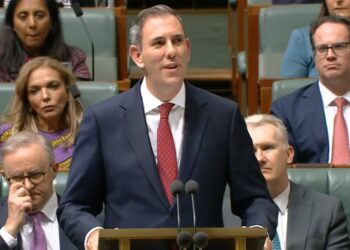Let’s be honest here. Not all Australians need financial advice. It’s a perfectly nice idea, but one that in practice has failed miserably.
Advice is accessible to those who can afford it. Which is no different to basically any other product or service. If you can afford it, you can buy it. If you can’t afford it, bad luck.
But unlike other services available on the open market, financial advice has been carted about from one inquiry to the next like some unattainable sorcery that only the rich consume and the rest of us can only hope to access. It had been pulled apart and put back together so many times that most Aussies couldn’t explain what financial advice is. Some call it life insurance. Others see it as a scam.
It’s not advisers calling for their services to be more affordable and accessible. It’s the bureaucrats, banks, super funds, and public servants who want to scale it into the stratosphere.
This week, Michelle Levy told the AFR Super and Wealth Summit that no matter what reforms are made, there will never be enough advisers for everyone to get the advice they need.
“Advice is episodic,” she said, “so we need a diversity of providers and the obvious candidates are the people that look after our money or lend us money.”
Crikey! Did Ms Levy miss the royal commission? The people who lend us money are probably the worst candidates to provide advice.
For a start, the royal commission uncovered systemic levels of fees being charged for no advice whatsoever. The problem was so extensive that it has become known as the ‘fees for no service’ scandal. At last count, the ‘people who lend us money’ have repaid $1.6 billion in fees for no advice.
How exactly are things going to change if banks begin providing advice again? Perhaps they have new tech platforms that alert them if a dead person is racking up life insurance premiums.
The whole idea is laughable. Financial advisers have been through the ringer with FASEA, regulatory changes, and huge increases in the cost of compliance. It’s an industry that is being regulated to death. Now Michelle Levy wants “to encourage banks and other institutions to use the information they have to advise their customers”.
But recent history has shown that this creates a great big mess. When the people making the widgets are able to advise you on which widget to buy, it doesn’t end well.
As the industry is dragged through yet another inquiry, the different perceptions of advice are becoming clearer. On one side, you have financial advisers who help their clients every day and know exactly what the value of advice is. They know it is expensive and inaccessible to some and they know why — because it’s valuable.
Then you have the other group, the ‘people who lend us money’, who have a very different idea of what financial advice is. To them, it is a product on a shelf to be flogged at scale. They are leading the charge to make advice more affordable and accessible — because it makes it easier to sell!
Banks, super funds, and other major financial intuitions are built on a sales model that is based on volume. They have no business giving advice to anyone.
Advisers provide advice. Let the widget makers continue making their widgets.




The Hayne train wreck had the opportunity to split Advice and product.
He failed.
And now the big power brokers of Industry Super who own the Labor Party & the Banks who own the Liberal Party are using their political ownership to try to Flog more product than ever.
No doubt another disaster in the making.
No doubt both Industry Super & the Banks will yet again blame Real Advisers for the future disaster they make.
What an absolute basket case.
Yep, who wants to eat drive thru when they can have silver service.?
This is the most pertinent, insightful and correct opinion on the Financial Advice Industry and the advice space this year. Please keep it up James.
There are two different arguments here (1) can a vertically integrated organisation that has a vested interest in you taking their product provide unbiased advice? (2) does 90% of the compliance obligations financial planners encounter improve the outcome for the clients?
Short answer to both is no. Let’s not however confuse the two arguments. Advice can be made more affordable without reverting back to vertically integrated models.
Hear, hear!
Though 80% of the compliance could be removed if other things such as individual licensing are implemented. Then it would be more affordable and no Royal Commission. Has there ever been a Royal Commission into the legal industry?
100% spot on!
Thank you James Mitchell – for writing what every Professional Adviser is thinking right now. We may not hold the balance of power, but there are plenty who can see the truth and we need people like yourself right now with the loudest voice, and help us fix this legislative mess once and for all.
Agree.
Most people require a bit of help to start a super pension and check their centrelink entitlements when the time comes. Very arguably they should have had adequate insurances during their working life. Most pay off their home loan before they’ve retired. They’re the big issues.
More advanced strategies are not for everyone, just really the mass affluent who can afford to pay for advice.